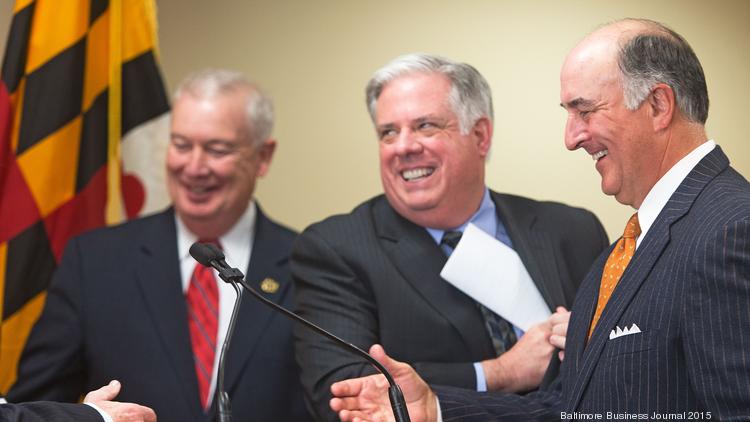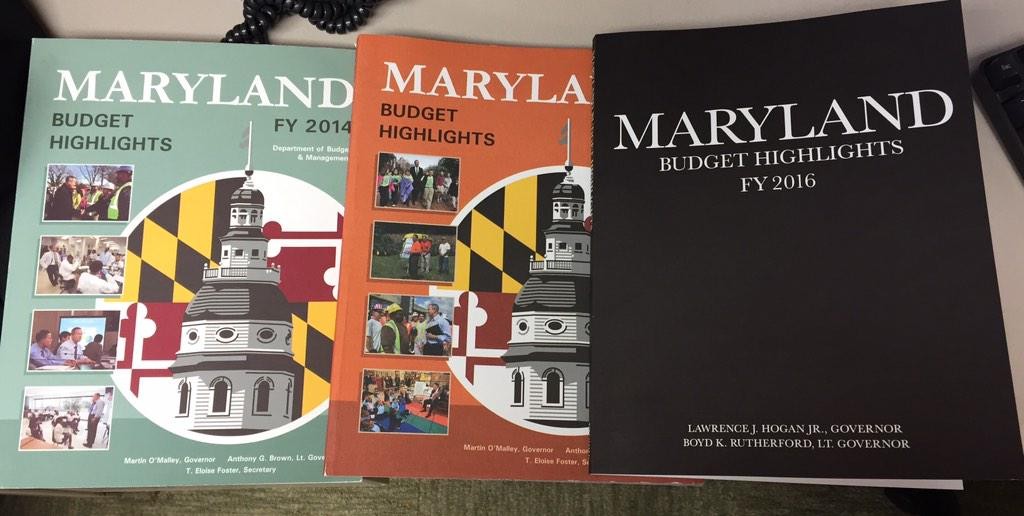Though we tend to assume that Maryland is a rollover for the Democrats, and often is, gubernatorial elections have been surprisingly competitive since Gov. William Donald Schaefer, whose goal was to win all the votes rather than only most of them, left the Mansion in 1994.
Gov. Parris Glendening barely beat Del. Ellen Sauerbrey, who earned the sobriquet Ellen Sourgrapes when she refused to concede defeat after seeing her claims of fraud evaporate, in 1994. Glendening won by a more convincing 10% in their 1998 rematch.
Republican Rep. Bob Ehrlich had his revenge on the Democrats for redistricting him out of his congressional seat when he ran for governor in 2002 and beat Lt. Gov. Kathleen Kennedy Townsend. But Ehrlich, memorably nicknamed “Bobby Haircut” by Marc Fisher of the Washington Post, was a one-term wonder.
Baltimore Mayor Martin O’Malley defeated Ehrlich in for reelection in 2006 by over 6 points. Even though it was great year for Democrats, Ehrlich was the only Republican governor to lose. Ehrlich came back for a rematch but it was no “Return of the King.” O’Malley defeated him by an even greater 14%, although 2010 was a terrible year for Democrats.
In short, though the Democrats have dominated gubernatorial contests–Ehrlich was the first GOP governor since Agnew became the accidental governor–Republicans have run good candidates and viable gubernatorial campaigns even as the state has trended inexorably towards the Democrats in virtually all other elections.
Lieutenant Governor has not been a great launching pad for gubernatorial campaigns since the office was created in 1970. Blair Lee III lost the Democratic primary to Harry Hughes in 1978. Melvin Steinberg lost the Democratic primary to Glendening in 1994. Townsend lost the general election in 2002. (Michael Steele has not run for governor but lost his bid for the U.S. Senate in 2006.)
This year, Lt. Gov. Anthony Brown hopes to break the curse by becoming the first Lieutenant Governor to become governor since the office was created in 1970. Certainly, Brown won the primary convincingly in the face of serious opposition.
Despite expectations of a relatively easy campaign, Maryland has a real contest this year. Larry Hogan is serious politico if only because he says “I am not a professional politician” despite having been Ehrlich’s appointments secretary and founding “Change Maryland” as a vehicle for his gubernatorial ambitions. (Sidenote: Would you hire a doctor or plumber who put up a shingle proclaiming “I am not a professional” to get your business?)
Another inkling of a real campaign and that the internal polls may be closer than the recent 9 points reported in the Washington Post is that Lt. Gov. Anthony Brown felt it necessary to make a startling promise not to raise taxes even as Hogan faces his own problems regarding “error riddled” identification of government waste that he plans to eliminate.
Next up: an examination of the claims and promises of both the Hogan and Brown campaigns.


